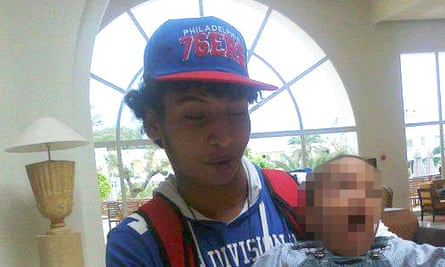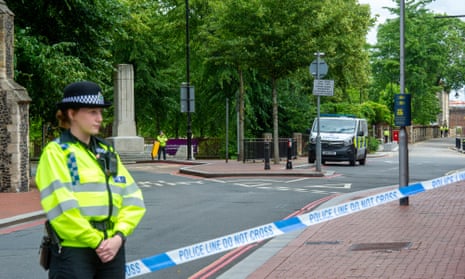Khairi Saadallah, the suspect in the Reading terror attack, is understood to be a Libyan national who came to Britain as a refugee from the country’s civil war, which began in 2014 during attempts to build a democratic state after the fall of Colonel Muammar Gaddafi.
Neighbours said a close family member of Saadallah’s had fought in Libya against Gaddafi and had faced anti-Muslim abuse after the family’s arrival in the UK.
Gary, a neighbour who did not wish to give his surname, told the Guardian: “All he [Khairi Saadallah’s relative] wanted was a quiet life. The first time I met him was when I heard people shouting anti-Muslim abuse at him. They called him a terrorist. I told them they were a bunch of liars… When there was trouble [with anti-Muslim abuse], I wrapped my arms around him and said don’t react, they are the ones in the wrong.”
He added that Saadallah’s family member was “disgusted” by the actions of the Manchester bomber, who was also from a Libyan family. Salman Abedi killed 22 people after an Ariana Grande concert at Manchester Arena in 2017. Born in Manchester in the UK, Abedi had been rescued by the Royal Navy from the civil war in Libya three years earlier, alongside other British citizens.

Gary said he did not think Saadallah, now 25, had fought in the conflict. “I didn’t think [Saadallah] fought in Libya because he was too young,” he said. “They were not massively religious. They were good to people.”
British relations with Libya and its diaspora have been coloured by the UK government’s often ambivalent relations with Gaddafi, the UK’s active support for his ousting in 2011, and the UK’s diplomatic efforts to try to secure an end to the widening civil war.
That on-off war, fed by the inability of Libyans to reach a political distribution of power and wealth between east and west, has reached a new fever pitch in recent months.
The backwash from the 2011 intervention led indirectly to the Manchester bombing. Abedi, 22,, whose parents fled Libya in 1994, returned to the country after Gaddafi’s fall in 2011 only to come back to the UK as the fighting continued in Libya. Abedi and his family developed links to the Libyan Islamic Fighting group, an Islamist group that helped oust Gaddafi.
After initial suspicions of a terrorist network, police later said they believed Abedi had largely acted alone but then came to realise the extent to which he had been working with his brother. In March 2020, his brother, Hashem Abedi, was found guilty of 22 counts of murder in relation to the attack. He had been in Libya at the time of the detonation.
In May 2017, MI5 launched an internal inquiry into its handling of the warnings it had received about Abedi and a second inquiry into how it missed the danger. MI5 admitted it had a policy of allowing Libyans in the UK to travel to fight against Gaddafi and return later, including some who had been under house arrest in the UK for counter-terrorist measures.
In November 2018, parliament’s intelligence and security committee declared that MI5 had acted “too slowly” in its dealings with Abedi. The committee’s report noted: “What we can say is that there were a number of failings in the handling of Salman Abedi’s case.”








